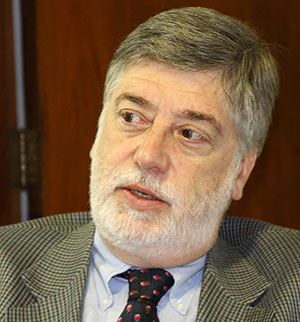Related material
News
Photos
Text
|
 |
| Psychoanalyst and psychiatrist Claudio Cohen, a professor at USP's Faculty of Medicine, will be the exhibitor |
How will new genetic technologies affect the production of meaning in the lives of human beings? If humanity became a civilization of cyborgs (humans with bio-mechatronic components), how would that affect the human condition? What is the role of the university in thinking about these issues and in establishing (or not) limits to the transformations in the human being?
These issues will be discussed at the seminar The Human Being and Technique, on October 8, at 3 pm, in IEA-USP's Event Room. It will be the fourth meeting of the cycle In Search of Lost Meaning. The speaker will be psychoanalyst and psychiatrist Claudio Cohen, a professor at USP's Faculty of Medicine, who is an expert in bioethics and clinical bioethics.
The debaters will be economist Gilson Schwartz, a professor of the Department of Film, Radio and Television at USP's School of Communications and Arts (ECA), and political scientist Maya Mitre, a researcher at the Federal University of Minas Gerais and a specialist in political theory, and social studies of science and technology. Moderation will be in charge of political scientist Bernardo Sorj, a visiting professor at the IEA-USP and coordinator of the cycle.
The event will be broadcast live on the web.
CYCLE
In Search of Lost Meaning: Interdisciplinary Dialogues on Science and Transcendence, coordinated by Sorj, has planned four meetings. The goal is to address the changes caused by the decline of the great political ideologies and to discuss the production of meaning in this new sociocultural context.
According to Sorj, the political ideologies of modernity - as the Enlightenment liberalism, fascism, communism and nationalism – have maintained from religious monotheism the notion that values can be organized around universal principles and that there is a single truth. With the decline of the "secular religions" a world of "polytheism of values , which transfers to the individual the right and responsibility to choose between often conflicting and mutually exclusionary beliefs and values" has arisen.
This polytheism of values is the main feature of today in the opinion of Sorj, for whom "the challenge of democratic societies is to assume this position, completing the process of secularization that began in the Renaissance."
Photo: Marcos Santos/USP Imagens